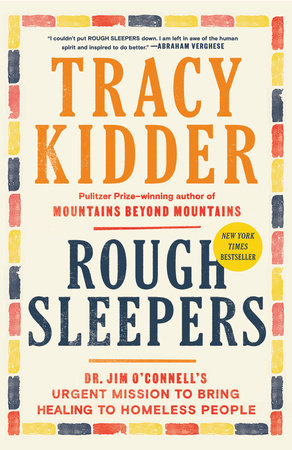Honored Faculty Influenced by Great Books
Being promoted is one of the most significant events in the life of a faculty member. KUMC is proud of these achievements and is grateful for the hard work and dedication of all honorees.
To recognize the career achievements of the School of Medicine promoted faculty, a digital Promotion Recognition Book Program was initiated by the School of Medicine’s office of Faculty Affairs and Development (FAD) and the A.R. Dykes Library. Book selections are chosen by the promoted faculty member along with a brief personal statement that describes the significance of the book and how it has affected their personal and/or professional life.
The List!
Below is a condensed list of the honorees and the book they chose. More information, including book and faculty photos and why the honorees chose their particular book, is on the Promotion Honorees 2025 page.
Pooja Bhadbhade, DO
Internal Medicine, Allergy, Clinical Immunology and Rheumatology
Associate Professor
Being Mortal by Atul Gawande || ISBN: 1250076226
Ken Byrd, DO
Internal Medicine, Hematologic Malignancies and Cellular Therapeutics
Associate Professor
The Emperor of All Maladies by Siddhartha Mukherjee || ISBN: 1439170916
Andrea Chadwick, MD, MSc, FASA
Anesthesiology, Pain and Perioperative Medicine
Professor
A Visit from the Goon Squad by Jennifer Egan || ISBN: 9780307477477
Tara Chettiar, MD
Obstetrics and Gynecology
Clinical Associate Professor
The Story of Jane by Laura Kaplan || ISBN: 0593471083
Andrea Covey, MD
Internal Medicine, Pulmonary, Critical Care and Sleep Medicine
Associate Professor
Peace Is Every Step by Thich Nhat Hanh || ISBN: 0553351397
Albert Eid, MD
Internal Medicine, Infectious Diseases
Professor
The Prophet by Kahlil Gibran || ISBN: 9780394404288
Ryan Fagan, PhD
History and Philosophy of Medicine
Education Associate Professor
The Civilization of the Renaissance in Italy by Jacob. Burckhardt; S. G. C. Middlemore (Translator); Peter Burke (Introduction by); Peter Murray (Notes by) || ISBN: 9780140445343
Tanya Fildari, MD
Neurosurgery
Education Associate Professor
And Finally by Henry Marsh || ISBN: 1250286085
Meg Folsom, MD, MS, CCC/SLP
Anesthesiology, Pain and Perioperative Medicine
Associate Professor
A Tree Grows in Brooklyn by Betty Smith || ISBN: 9780060801267
Valerie French, MD MAS
Obstetrics and Gynecology
Professor
Project Hail Mary by Andy Weir || ISBN: 9780593135228
Gregory Gan, MD, PhD
Radiation Oncology
Associate Professor with tenure
GATTACA by Frederic P. Miller || ISBN: 0767805712
John Jakicic, PhD
Internal Medicine, Physical Activity & Weight Management
Professor with tenure
Out of This Furnace by Thomas Bell || ISBN: 0822952734
Jorge Kawano Castillo, MD
Neurology
Clinical Associate Professor
Stroke by James C. Grotta (Editor); Gregory W. Albers (Editor); Joseph P. Broderick (Editor); Scott E. Kasner (Editor); Eng H. Lo (Editor); Ralph L. Sacco (Editor); Lawrence Ks Wong (Editor); Arthur L. Day (Editor) || ISBN: 0323694241
Patrick Landazuri, MD
Neurology
Professor
Seizure and Epilepsy Care by Patrick Landazuri; Nuria Lacuey Lecumberri; Laura Vilella Bertran; Mark Farrenburg; Samden Lhatoo || ISBN: 9781009264983
Kayla Maalouf, MD
Pediatrics
Clinical Associate Professor
Eleanor Oliphant Is Completely Fine by Gail Honeyman || ISBN: 0735220689
Courtney Marsh, MD, MPH
Obstetrics and Gynecology
Professor
A New Earth: Awakening to Your Life's Purpose by Eckhart Tolle || ISBN: 0452289963
Amanda Olinger, DO
Pediatrics
Clinical Associate Professor
The Gifts of Imperfection by Brené Brown || ISBN: 9781616499600
Shana Palla, EdD
Biostatistics & Data Science
Education Associate Professor
Where the Red Fern Grows by Wilson Rawls || ISBN: 9780440412670
Kate Rampon, MD
Family Medicine and Community Health
Associate Professor
Four Thousand Weeks by Oliver Burkeman || ISBN: 0374159122
Diego Robles Mazzotti, PhD
Internal Medicine, Medicine Informatics
Associate Professor with tenure
Hunt, Gather, Parent by Michaeleen Doucleff || ISBN: 9781982149673
Salih Samo, MD, MSci
Internal Medicine,Gastroenterology, Hepatology & Motility
Associate Professor
Leaders Eat Last by Simon Sinek || ISBN: 9781591848011
Mihaela Sardiu, MD
Biostatistics & Data Science
Associate Professor, award of tenure
The Art of Learning by Josh Waitzkin || ISBN: 9780743277457
Jordan Siscel, MD
Anesthesiology, Pain and Perioperative Medicine
Associate Professor
Not Fade Away by Laurence Shames and Peter Barton || ISBN: 9780060737313
Julia Slater, MD, FACS, FABA
Plastic, Burn and Wound Surgery
Associate Professor
Essentialism: The Disciplined Pursuit of Less by Greg McKeown || ISBN: 0804137382
Margaret Smith, MD, MPH, MHSA
Family Medicine and Community Health
Clinical Professor
Invisible Man by Ralph Ellison || ISBN: 9780679732761
Shane Stecklein, MD, PhD
Radiation Oncology
Associate Professor with tenure
The Spirit Catches You and You Fall Down by Anne Fadiman || ISBN: 9780374533403
Megan Thomas, MD
Obstetrics and Gynecology
Clinical Associate Professor
The Glass Castle by Jeannette Walls || ISBN: 0743247531
Sufi Thomas, MD
Otolaryngology-Head and Neck Surgery
Professor, previously tenured
Institutional Intelligence: How to Build an Effective Organization by Gordon T. Smith || ISBN: 9780830844852
Ryan Townley, MD
Neurology
Associate Professor
The Man Who Mistook His Wife for a Hat by Oliver Sachs || ISBN: 9780684853949
Eric Vidoni, PhD
Neurology
Professor, previously tenured
Draft No. 4 by John McPhee || ISBN: 9780374537975
Sri Yarlagadda, MBBS
Internal Medicine, Nephrology and Hypertension
Professor
Atomic Habits by James Clear || ISBN: 9780735211292
Jun Zhang, MD, PhD
Internal Medicine, Medical Oncology
Professor
Science in History : Volume 1: the Emergence of Science by J. D. Bernal || ISBN: 9780571273003




